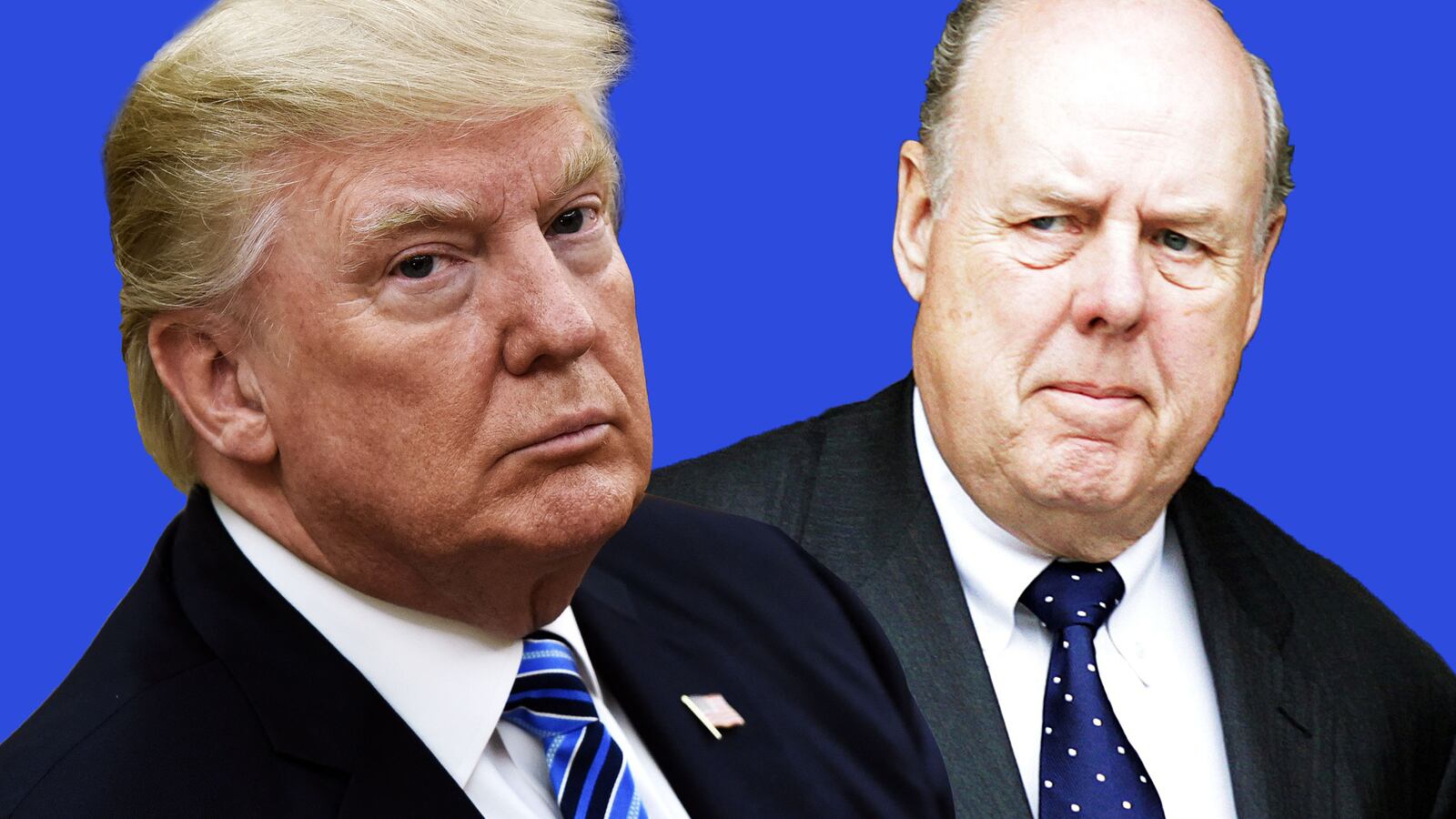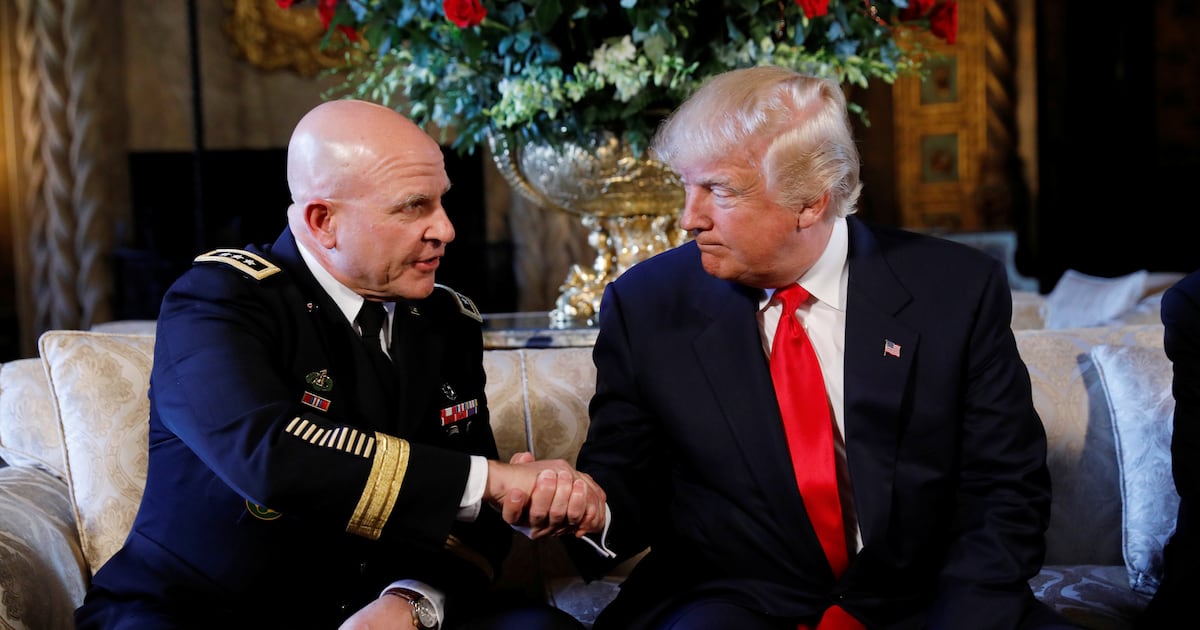If President Donald Trump’s lawyer discussed the possibility of pardons with Paul Manafort and Michael Flynn, then it could be a whole new piece of the obstruction of justice investigation into the president.
On Wednesday, the New York Times and Washington Post reported that last summer, John Dowd talked to the lawyers of the two former Trump campaign advisors about pardons for then-uncharged crimes. Dowd, who resigned as Trump’s lawyer last week, denies the report.
But if true, the report raises the possibility that the pardons were offered to influence the two men if they later faced a decision about whether to cooperate with special counsel Robert Mueller’s investigation into links between Russia and the Trump campaign to interfere with the 2016 presidential election.
In fact, of course, both men have now been charged by Mueller, and each has chosen a different course, so far. Flynn, Trump’s former national security advisor, has pleaded guilty to making false statements to the FBI and has agreed to cooperate with Mueller. Manafort, Trump’s former campaign manager, has been charged with failing to register as a foreign agent and a variety of related financial crimes, and shows no sign of pleading guilty or cooperating.
If the report is true, then five observations are worth noting:
1. Even discussing a pardon is a bad idea.
In light of the allegations last summer that Trump may have been obstructing the Russia investigation when he asked FBI Director Jim Comey to let the investigation into Flynn go and then fired Comey, most lawyers would scrupulously avoid any act that might even hint at obstruction of justice. Discussing the possibility of a pardon could at the very least create the appearance of an attempt to tamper with witnesses in the Russia investigation.
The reported conversations occurred after Mueller was appointed to serve as special counsel and after a grand jury had been empaneled, and everyone involved the conversation would have known that the risk of indictment of Flynn and Manafort was very real. Even if Dowd’s intentions were solely to reward Trump aides for their past service to the President, discussing pardons with potential witnesses at that point was reckless because of the unlawful impression it could make, putting Trump at greater risk of being charged with obstruction of justice.
2. You don’t discuss pardons unless you want something in exchange.
Because discussing pardons looks so bad, it seems unlikely that Dowd would have done so unless he thought it was unavoidable, either because Trump insisted or because he thought it was essential to protecting Trump. As a matter of law, it is not necessary to discuss a pardon with the recipient before it can be granted. If Trump wanted to pardon Flynn and Manafort, he could just do so on his own. One reason to discuss a pardon with them is to extract some thing of value in exchange, such as a promise not to cooperate with Mueller. Could such an arrangement explain Manafort’s persistence in maintaining his innocence, even after his co-conspirator Richard Gates has pleaded guilty and agreed to cooperate against him?
3. A president’s pardon power is absolute—unless used corruptly.
Some have argued that the President’s power to pardon federal offense is absolute, so there is nothing wrong with discussing it with anyone he wants. While the President does indeed have the power of the pardon, as with all powers, he may not use it corruptly. For example, the President also has the power to appoint cabinet secretaries and federal judges, but he may not so in exchange for bribes. Similarly, the President may grant pardons as expressions of mercy to those who show remorse for their crimes or for any other legitimate reason, but he may not grant pardons to silence would-be witnesses against himself or his associates.
4. It is likely that Trump was aware of the offer.
If Dowd discusses pardons with Flynn and Manafort, it seems very unlikely that he did so without consulting with Trump. A lawyer has an ethical duty to communicate with his client, and to keep him reasonably informed about the matter that is the subject of the representation. In light of the significance of pardons in these cases, it seems that Dowd had an obligation to discuss his strategy with Trump. A lawyer with Dowd’s experience would certainly know this. The chance that Trump did not know about it is close to zero percent.
5. Dowd could be in legal trouble.
Mueller would need to know more details about the report from those with knowledge before making any charging decisions, but Dowd may be at legal risk. The key issue is whether Dowd had a corrupt intent in talking with Flynn and Manafort about pardons. To determine intent, jurors are typically instructed to draw reasonable inferences based on their common sense in light of the totality of the circumstances — what the person said and did. Here, what Dowd said and did will matter, but the mere fact that he discussed pardons with two potential witnesses from Trump’s inner circle contribute to a reasonable inference of a corrupt purpose.
If Dowd and Trump agreed to offer pardons in an effort to silence Flynn and Manafort, they could be charged with conspiracy to obstruct justice. The attorney-client privilege generally protects communications between a lawyer and his client made for the purpose of seeking legal advice, but the privilege yields to what is known as the crime-fraud exception when the lawyer engages in criminal activity with his client.
Prosecutors are often reluctant to charge a lawyer for conduct that occurred during the course is his representation, but Mueller has shown some willingness to go after lawyers in this investigation, charging attorney Alex van der Zwaan with making false statements and compelling Manafort’s lawyer to testify before the grand jury. Could Dowd be next?





